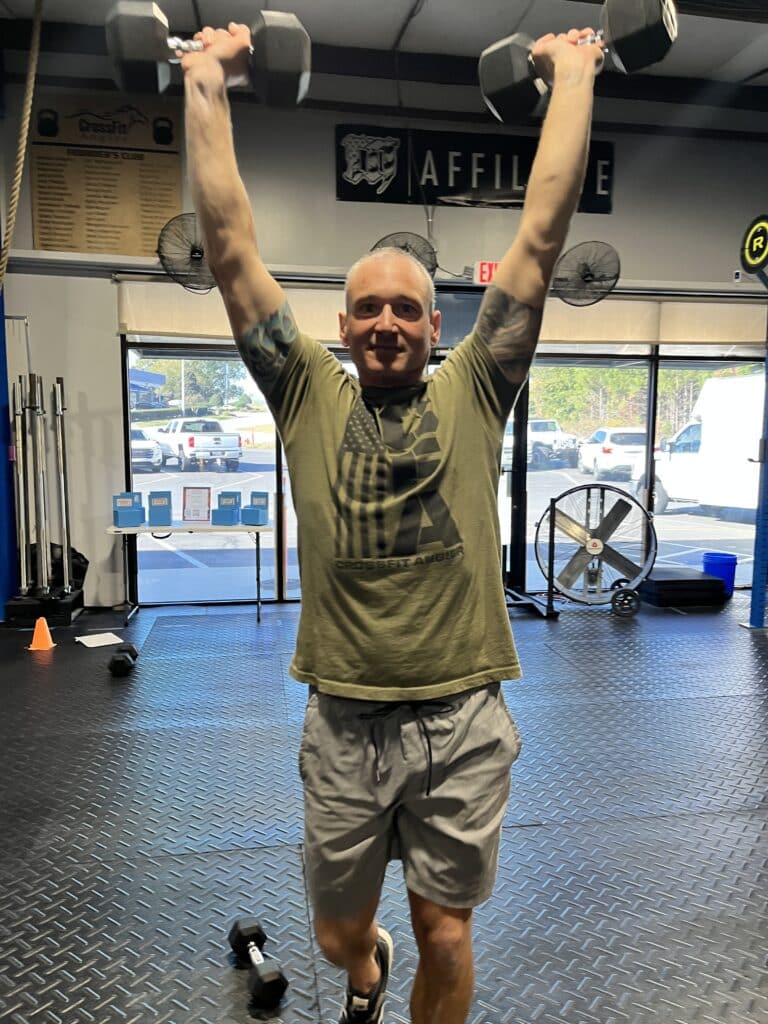The Mental Health Benefits of Staying Active and Fit
Remember when we were kids, and running around was just… fun? No workout plans, no step counters—just pure joy in movement. Somewhere along the way, many of us lost that simple connection between moving our bodies and feeling good. But here’s the thing: that connection never actually disappeared. We just forgot about it.
In fast-paced urban environments like New York City, where mental health challenges are becoming increasingly common, more people are rediscovering an age-old truth: physical activity isn’t just about building muscles or losing weight—it’s about nurturing our minds too.
“Movement is medicine for the mind.”
Movement as a Natural Antidepressant
One of the most powerful mental health benefits of staying active is its ability to combat depression naturally. Exercise is often referred to as a “natural antidepressant” because of how it impacts brain chemistry. When you engage in regular physical activity, your body releases endorphins, serotonin, and dopamine—neurotransmitters that help regulate mood and emotions.
Studies have shown that consistent exercise can be just as effective as medication for individuals with mild to moderate depression. In fact, many depression therapists in New York recommend incorporating movement into treatment plans as a complementary approach. While therapy and medication are important tools, physical activity enhances their effectiveness by promoting brain plasticity, improving sleep, and increasing self-esteem.
If you or someone you know is struggling with depression, it’s essential to seek professional help. Depression therapistsin New York can provide the support needed while helping integrate movement into a holistic wellness plan.
The Science Behind Movement and Mood
Let’s get a bit nerdy for a moment (but in a fun way). When you exercise, your brain becomes a natural pharmacy, whipping up some pretty incredible chemicals. You’ve probably heard of endorphins, those feel-good hormones that give you that post-workout high. But there’s more to the story.
Mental health professionals, including many depression therapists in New York, often point to research showing that regular physical activity actually changes your brain’s structure and function. It’s like giving your brain an upgrade—better processing power, improved memory, and enhanced emotional regulation. Studies have found that consistent exercise can be as effective as medication for treating mild to moderate depression in some cases.
Think of it this way: each time you move your body, you’re not just burning calories—you’re building a stronger, more resilient mind.
Breaking Down the Benefits
Here’s where things get really interesting. The mental health benefits of staying active go way beyond just feeling good after a workout. Let’s break it down:
Stress Melting and Anxiety Taming
- Physical activity helps lower cortisol levels (that pesky stress hormone).
- Regular exercise creates a buffer against daily stressors.
- Movement provides a healthy outlet for pent-up tension and worried thoughts.
How Different Types of Exercise Affect Mental Health
Not all exercise affects the brain in the same way. Different forms of movement target specific mental health concerns, making it easier to choose the right activity based on your needs.
- Cardio Workouts (Running, Cycling, Swimming): Best for reducing anxiety and depression due to their ability to boost serotonin and endorphin levels.
- Strength Training (Weightlifting, CrossFit, Bodyweight Exercises): Improves self-confidence and provides a structured challenge that enhances mental resilience.
- Yoga & Mindful Movement: Reduces stress and anxiety by lowering cortisol levels and promoting relaxation.
- Group Fitness & Team Sports: Great for combatting loneliness and isolation while fostering social connections.
Choosing the right activity is key to maintaining consistency. Many depression therapists in New York encourage clients to find movement they actually enjoy—this increases adherence and ensures exercise becomes a long-term habit.
Sleep and Self-Image Boosting
- Better quality sleep comes naturally with regular activity.
- Achieving fitness goals, no matter how small, builds confidence.
- Movement helps you connect with your body in a positive way.
“Your strongest muscle and worst enemy is your mind. Train it well.”
Getting Started: Your Mind-Body Journey
Now, before you think you need to become a marathon runner or yoga master, let’s get real. Starting your mind-body journey can be as simple as:
- Taking a 10-minute walk during your lunch break.
- Dancing while doing household chores.
- Stretching for five minutes when you wake up.
- Finding a physical activity you actually enjoy (this is key!).
The goal isn’t perfection—it’s progress. Start where you are, use what you have, and do what you can.
Breaking the Cycle of Stress Through Movement
Stress is an unavoidable part of life, but how we manage it determines its impact on our mental health. One of the most effective ways to break the stress cycle is through consistent movement. When stress levels rise, our bodies enter a state of fight-or-flight, releasing cortisol and adrenaline. Over time, chronic stress can lead to anxiety, depression, and physical health issues.
Regular physical activity regulates the body’s stress response, helping to:
✅ Lower cortisol levels, reducing feelings of tension.
✅ Increase endorphins, promoting relaxation and mood stability.
✅ Improve sleep quality, preventing stress-related fatigue.
✅ Strengthen emotional resilience, making it easier to handle challenges.
If stress is affecting your daily life, combining exercise with professional therapy can create a powerful mental health strategy. Many depression therapists in New York recommend exercise as part of a broader treatment plan, emphasizing its role in emotional regulation.
Taking the first step is often the hardest, but starting small can lead to significant mental health improvements. Whether it’s a short walk, a yoga session, or a strength workout, every movement counts toward building a healthier, more balanced mind.
The Profound Mental Health Benefits of Staying Active and Fit
In today’s fast-paced world, especially in bustling cities like New York, the importance of maintaining mental health cannot be overstated. While therapy and medication are common approaches to mental well-being, an often-overlooked yet highly effective method is regular physical activity. Engaging in consistent exercise offers a multitude of mental health benefits, from reducing stress and anxiety to enhancing mood and self-esteem. This article delves deep into the myriad ways staying active can bolster mental health and provides practical tips to seamlessly incorporate exercise into daily life.
The Science Behind Exercise and Mental Well-being
When we engage in physical activity, our bodies undergo several physiological changes that positively impact mental health. One of the most notable effects is the release of endorphins, often referred to as “feel-good” hormones. These neurotransmitters act as natural painkillers and mood elevators, leading to feelings of euphoria commonly known as the “runner’s high.”
Beyond endorphins, exercise increases the production of serotonin and norepinephrine, chemicals that play a crucial role in mood regulation. Elevated levels of these neurotransmitters can alleviate symptoms of depression and anxiety. Moreover, regular physical activity has been shown to promote neuroplasticity—the brain’s ability to adapt and form new neural connections—which enhances cognitive function and emotional resilience.
Stress Reduction Through Physical Activity
Stress is an inevitable part of life, but chronic stress can have detrimental effects on both physical and mental health. Regular exercise serves as a powerful stress reliever. Physical activity reduces levels of cortisol, the body’s primary stress hormone, thereby mitigating the adverse effects of stress on the body.
Additionally, engaging in exercise provides a healthy outlet for releasing tension and pent-up emotions. Activities such as yoga, tai chi, and even brisk walking incorporate rhythmic movements and deep breathing, which activate the body’s relaxation response, counteracting the fight-or-flight response induced by stress.
Alleviating Anxiety and Depression
Anxiety and depression are among the most common mental health disorders worldwide. While various treatments are available, incorporating regular physical activity has been shown to be a potent complementary approach.
Exercise distracts from negative thoughts and provides a sense of accomplishment, both of which can alleviate symptoms of depression. Furthermore, the social interaction that often accompanies group exercises or sports can combat feelings of isolation, a common feature of depression.
For anxiety, the repetitive motions involved in activities like swimming, running, or cycling can have a meditative effect, helping to calm the mind. Moreover, improved physical fitness can enhance self-image and self-efficacy, reducing the fear and worry characteristic of anxiety disorders.
Enhancing Sleep Quality
Sleep and mental health are closely intertwined. Poor sleep can contribute to the development of mental health issues, and conversely, mental health disorders can lead to sleep disturbances. Regular physical activity has been shown to improve sleep quality by helping individuals fall asleep faster and deepening sleep.
The energy depletion that occurs during exercise stimulates recuperative processes during sleep. Additionally, the reduction in stress and anxiety through exercise can further promote restful sleep. However, it’s essential to time workouts appropriately, as exercising too close to bedtime may have a stimulating effect, potentially disrupting sleep.
Boosting Self-Esteem and Cognitive Function
Achieving fitness goals, no matter how small, can significantly boost self-esteem and self-worth. Regular exercise provides a sense of mastery and control, which can be particularly empowering for individuals struggling with mental health issues.
Cognitively, exercise enhances brain function by increasing blood flow to the brain, promoting the growth of new neurons, and improving overall brain performance. Studies have shown that regular physical activity can improve memory, attention, and problem-solving skills, which are often impaired in individuals with depression and anxiety.
Practical Ways to Incorporate Exercise into Daily Life
Integrating physical activity into a busy schedule may seem daunting, but with intentional planning, it can become a seamless part of daily life. Here are some practical tips:
- Start Small: Begin with short, manageable sessions, such as a 10-minute walk during lunch breaks, and gradually increase the duration and intensity.
- Choose Enjoyable Activities: Engage in exercises that you find enjoyable, whether it’s dancing, cycling, swimming, or playing a sport. Enjoyment increases the likelihood of consistency.
- Incorporate Activity into Routine Tasks: Opt for stairs instead of elevators, walk or bike to nearby destinations, or perform stretching exercises while watching TV.
- Set Realistic Goals: Establish achievable fitness goals to maintain motivation and provide a sense of accomplishment.
- Find a Workout Buddy: Exercising with a friend or joining a group class can provide accountability and make the experience more enjoyable.
Combining Exercise with Professional Mental Health Support
While exercise offers substantial mental health benefits, it is not a standalone cure for mental health disorders. For individuals experiencing significant mental health challenges, it’s crucial to seek professional support. Combining regular physical activity with therapy can provide a comprehensive approach to mental well-being.
At Manhattan Mental Health Counseling, we recognize the integral role of physical activity in mental health. Our team of licensed therapists is dedicated to providing personalized care, helping clients develop holistic strategies that encompass both physical and mental health practices.
Overcoming Barriers to Physical Activity
Despite the clear benefits, many individuals face barriers to engaging in regular physical activity. Common obstacles include:
- Time Constraints: Busy schedules can make it challenging to find time for exercise.
- Physical Limitations: Chronic pain or disabilities may restrict the types of activities one can perform.
- Lack of Motivation: Mental health issues can diminish motivation to engage in physical activity.
When Exercise Meets Therapy
While physical activity is powerful, mental health professionals in Manhattan emphasize that it works best as part of a comprehensive approach to mental health. Think of exercise as one tool in your mental wellness toolbox. Professional therapy, when combined with regular physical activity, can create a robust foundation for mental health.
NYC mental health counseling services increasingly recognize the value of incorporating movement into treatment plans. It’s not about replacing therapy with exercise, but rather enhancing the benefits of both. Many anxiety treatment specialists in New York City actively encourage their clients to find ways to stay physically active as part of their overall wellness strategy.
A Step Forward
Remember, this isn’t about transforming into a fitness guru overnight. It’s about recognizing that our bodies and minds are connected in powerful ways, and that moving your body—in whatever way feels right for you—can be a meaningful part of your mental health journey.
Start small, be patient with yourself, and remember that every step counts. And if you’re struggling with mental health challenges, know that it’s okay to reach out for professional help. Sometimes the bravest thing we can do is ask for support when we need it.
Your journey to better mental health might just begin with a single step—literally. Whether you’re dealing with depression, anxiety, or just looking to enhance your mental wellness, combining regular movement with professional support could be your path to a healthier, happier you. With the wide availability of mental health counseling services in New York, taking that first step toward wellness has never been more accessible.
At Manhattan Mental Health Counseling, we understand the intricate link between physical activity and mental well-being. Our team of dedicated professionals is here to support you in integrating movement into your mental health journey. Contact us today to learn more about how we can assist you in achieving a balanced and fulfilling life.
For more information, visit our website: Manhattan Mental Health Counseling
7 Powerful Benefits of Personal Training in Angier to Help You Achieve Your Fitness GoalsBreaking Barriers: 10 Lessons from Savannah Bananas and Unconventional Fitness.CrossFit Angier Welcomes # 1 Renew Active, One Pass, Aaptiv, and Active&Fit Eligible MembersDiscover the # 1 Best Gym Near Lillington: CrossFit AngierBeginner CrossFit Workouts: Your Gateway to a You






